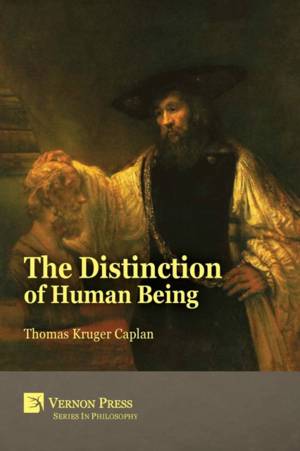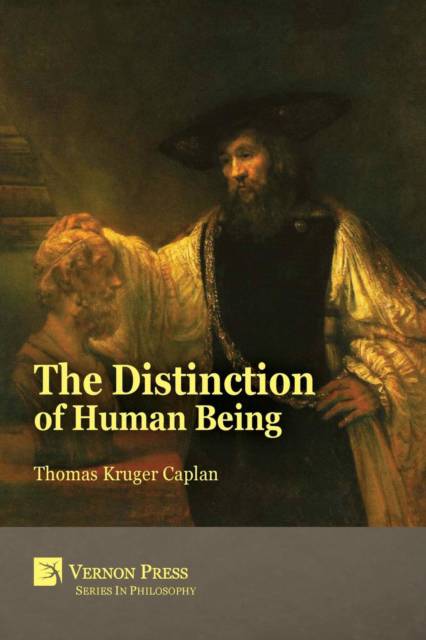
- Retrait gratuit dans votre magasin Club
- 7.000.000 titres dans notre catalogue
- Payer en toute sécurité
- Toujours un magasin près de chez vous
- Retrait gratuit dans votre magasin Club
- 7.000.0000 titres dans notre catalogue
- Payer en toute sécurité
- Toujours un magasin près de chez vous
The Distinction of Human Being
An Introduction to the Logotectonic Method of Conception
Thomas Kruger Caplan
72,95 €
+ 145 points
Description
Perhaps we are never done with thought, nor should be. If this is indeed the case, then Kant may have been right after all in supposing that folks will never lose interest in metaphysics, in thought thinking thought. But what of academics? Where would we find these days a comprehensive treatment of pure reason, of the epochs of its origins and accomplishments, that is not just another collection of interpretations of "source" texts in translation? This study introduces philosophy students and professionals to the "logotectonic" method of conception as developed by Heribert Boeder, a pupil of Martin Heidegger, which is broadly structuralist in its approach but endeavors to make evident how the principles of rationality governing the Occidental tradition of λóγος (logos) - even those dictated by the animus of our post/modern world of thought in opposition to it - are, in fact, founded upon the "nature" of pure reason itself, the intellect, the discipline, and the art of which can be understood as constituting a unique "language" containing a vocabulary of distinguished terms, a syntax that determines their ratios, and rules of inference with which these terms of principle, insight, and issue are built into trains of thought about thought, every thought. As a result, the wisdom of the Muses (Homer, Hesiod, Solon), of the Holy Spirit (the Synoptic Narratives of Mark, Luke, and Matthew, the Apostolic Letters of Paul, the Gospel of John), and of Humanity (Rousseau, Schiller, Hölderlin) can be seen to have thrice articulated, in their own terms, a moving vision of our experience with the distinction of human being, inspiring critical reflection to consider the λóγος as a destiny with regards to which even we, as the thinkers, the doers, and the builders of today, are still learning what it means to make a difference. 'The Distinction of Human Being' offers contemporary thinkers, beginners as well as professionals, a comprehensive reading of the origin and the tradition of metaphysics encompassing the life and times of pure reason as it unfolds across its theoretical, practical, and poetic endeavor the last of which suggests what a philological philosophy might entail and demand of a new generation of friends of wisdom.
Spécifications
Parties prenantes
- Auteur(s) :
- Editeur:
Contenu
- Nombre de pages :
- 898
- Langue:
- Anglais
- Collection :
Caractéristiques
- EAN:
- 9781622730490
- Date de parution :
- 01-05-16
- Format:
- Livre broché
- Format numérique:
- Trade paperback (VS)
- Dimensions :
- 152 mm x 229 mm
- Poids :
- 1174 g

Les avis
Nous publions uniquement les avis qui respectent les conditions requises. Consultez nos conditions pour les avis.






